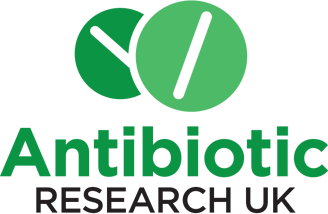More people are receiving one of the newly developed COVID-19 vaccines every day. However, Antibiotic Research UK’s Patient Support Service is seeing an increasing number of queries from people who are concerned about having the vaccine while they are also taking antibiotics.
Is it safe to have the COVID-19 vaccine if you are taking antibiotics? Will both treatments work?
Yes, it is safe.
The COVID-19 vaccine helps your body’s immune system to identify the coronavirus, which enables you to fight it off more quickly and effectively. The vaccine essentially ‘trains’ your immune cells to identify, attack and kill the virus.
Antibiotics, on the other hand, kill the bacteria that are causing an infection in your body. This means that your antibiotics should have no impact on the coronavirus or the vaccine, and the vaccine should have no impact on your bacterial infection (if you have one) or your antibiotics.
If you have any immediate medical concerns about your health or your treatment, please contact your GP or healthcare provider. If you would like support and information related to an antibiotic-resistant infection, you can reach out to our Patient Support Service who will be happy to listen and help.
What is an mRNA vaccine?
The Pfizer/BioNTech and Moderna vaccines against COVID-19 are not just exciting for the speed at which they have been produced. They are examples of mRNA vaccines – an entirely new type of vaccine.
Traditional vaccines give our body a dead or weakened sample of the virus that we want it to learn to identify. mRNA vaccines give our body a lab-created copy of the virus’ mRNA, which tells our own immune cells how to make the ‘spike protein’ that appears on the surface of the virus. This teaches our immune system what to look out for, giving a similar – although much stronger – outcome to traditional vaccines.
The science to create such vaccines had been in the works for 30 years. Scientists knew that technically it could be used to create an immune defence against any virus that they had mRNA from. This allowed them to start testing the COVID-19 vaccine within weeks of the start of the outbreak.
Do you have a question about COVID-19, antibiotics and antibiotic resistant infections? Ask ANTRUK for expert answers to your questions.
More information
There is limited clinical information about each of the different types of COVID-19 vaccine at present. If you have any concerns, your GP, community pharmacist or the health professional who will be administering the vaccine are all able to answer your questions.
We must emphasize that everybody should have their COVID vaccination why they receive their offer. It will protect you and ultimately our society, and is the only way to eventually return to normal. Please follow government advice about keeping yourself safe. You can help support the NHS by not phoning your GP or healthcare professional to ask when you will be vaccinated. Everybody will receive a formal notification about when to have their jab and where. This is issued according to the priority list recommended by the Joint Committee on Vaccination and Immunisation.
Find out more about:
- Ask ANTRUK has lots of answers to your questions about COVID-19
- NHS: COVID-19 vaccine information and guide for older adults
- Antibiotic Research UK: bacterial infections
Patient information:
Want to help prevent the next global health crisis?
Antibiotic resistance is a global health disaster that is already killing 700,000 people a year. Estimations predict 10 million deaths per year by 2050 if the current situation does not improve. However, there are lots of things you can do to help prevent the spread of antibiotic resistance. If you can, a donation funds our vital work in the development of new treatments and antibiotics.
Antibiotic Research UK’s interest in COVID-19
COVID-19 is a viral infection that is caused by a virus, whereas antibiotic-resistant infections are caused by bacteria. However, COVID-19 is of great interest to us as people with this infection may be more likely to also get a bacterial infection.

